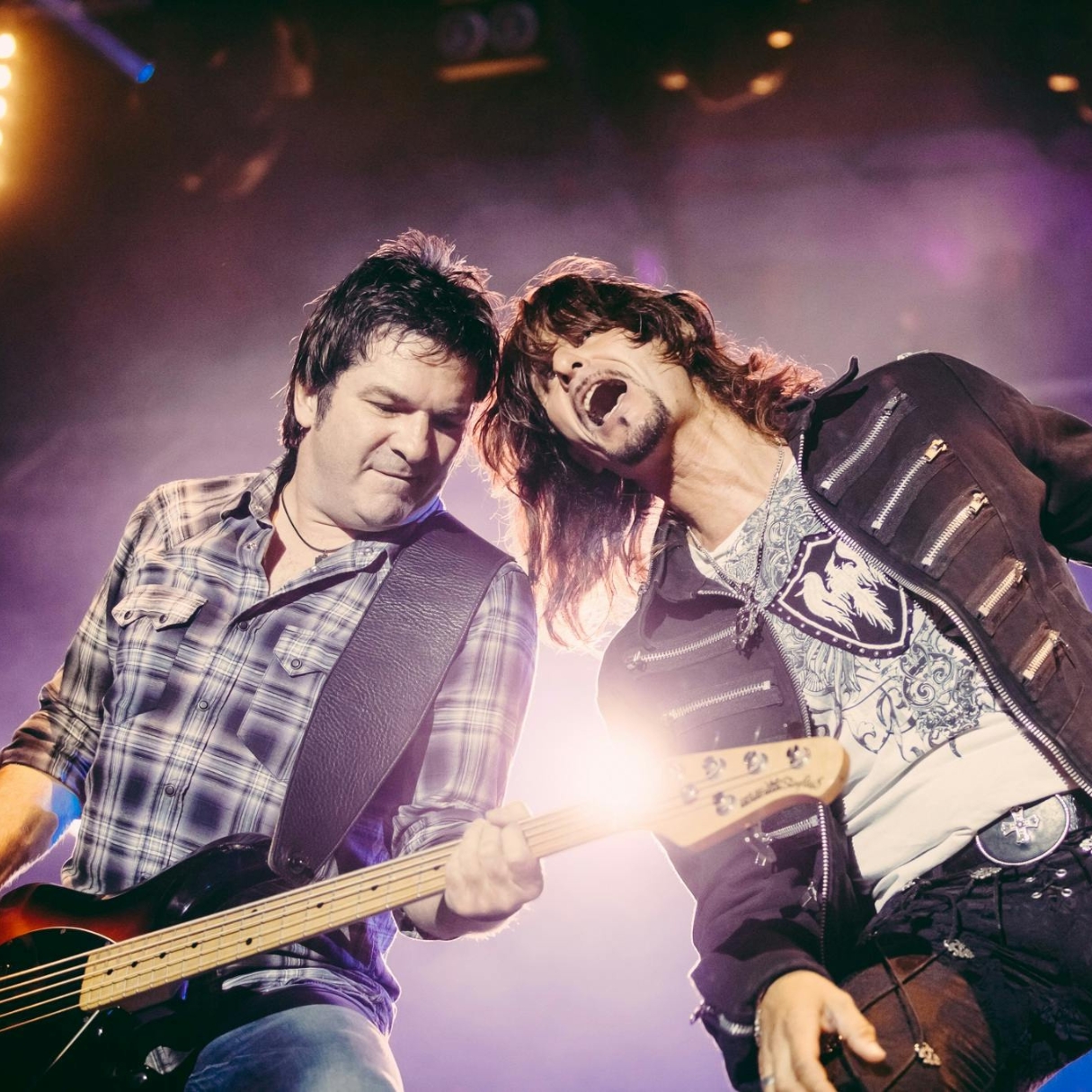When the first mic stand fell, I saw the singer hesitate.
He had taken the microphone in hand to sing into the faces of the crowd – a good move. Nobody was dancing, and the band (Films on Song, whom I’ve praised elsewhere) was giving us plenty of reason to.
Since we weren’t coming to the mountain, Teeter brought it to us. He prowled the perimeter of the circle we’d made, hollering to individual listeners in whichever direction his wild dance took him. But his cable snaked around a mic stand, and it hit the cement.
For only a beat, Teeter seemed undecided. Would he stop dancing and pick it up? I worried that he would, and we would all be embarrassed. But he plunged on, dancing now with the mic stand in tow, like a single can tied to a newlywed bumper.
Problem solved, except that a mic stand is not a streamlined machine, and he kept having to tug it free as it got caught on things, mostly its own legs. The expedition had become more of an effort than Teeter probably expected. He responded by increasing the energy of his singing to match the energy the task required. When he returned to his place on the enormous rug designating the stage, the crowd at last showed signs of life and cheered.
If Teeter had picked up the mic stand, knocking it over would have been a mistake.
By not picking it up, he turned it into something else.
I was standing just outside the open industrial-sized garage door. Keyboard player Carolyn Duren caught me singing along, and smiled. She told me after, “That’s why I do this.” To help people get lost in joy. It’s another kind of commitment, or maybe the same kind. Either as a performer or a listener, when one gives oneself to the moment, the moment can become something wild and grand, as well as ridiculous.
Writing songs, we’re listener and performer at the same time. What if we could get as carried away in composition as we can in a mosh pit?
I’m always trying to surprise myself in writing, partly as a way to trick myself into telling the truth. This happens in concrete, immediate choices: following a rhyme scheme or a character into the zone where you don’t know what is going to happen next. At each word in a new song, the writer approaches the same crossroads where Teeter met the mic stand. One can retreat, or one can commit.
Commitment doesn’t necessarily mean always making the most outrageous choice. Subtle and varied effects may be achieved by strong commitment in contradictory directions. There are other ways Teeter could have saved the fall of the mic stand. It didn’t matter that he dragged it across the floor, only that he did so with energy and aplomb. He leaned in.









